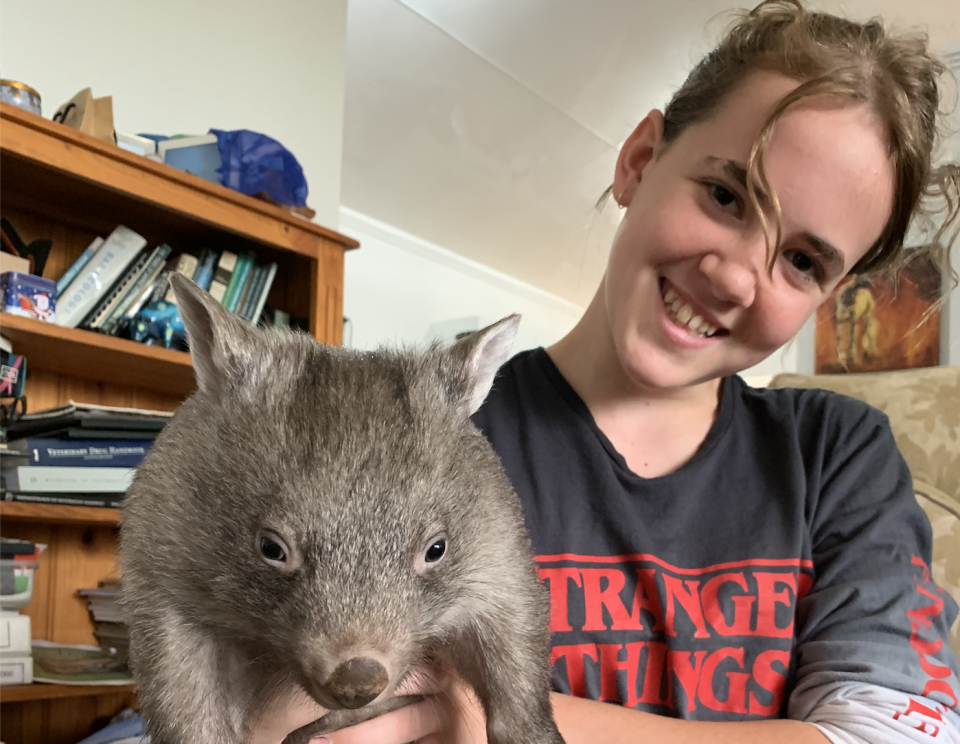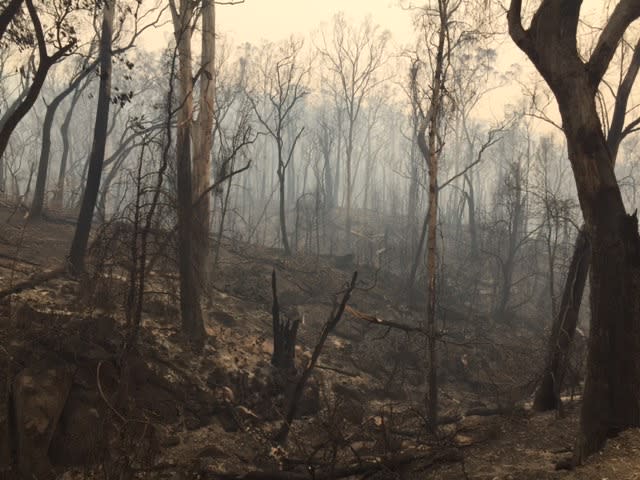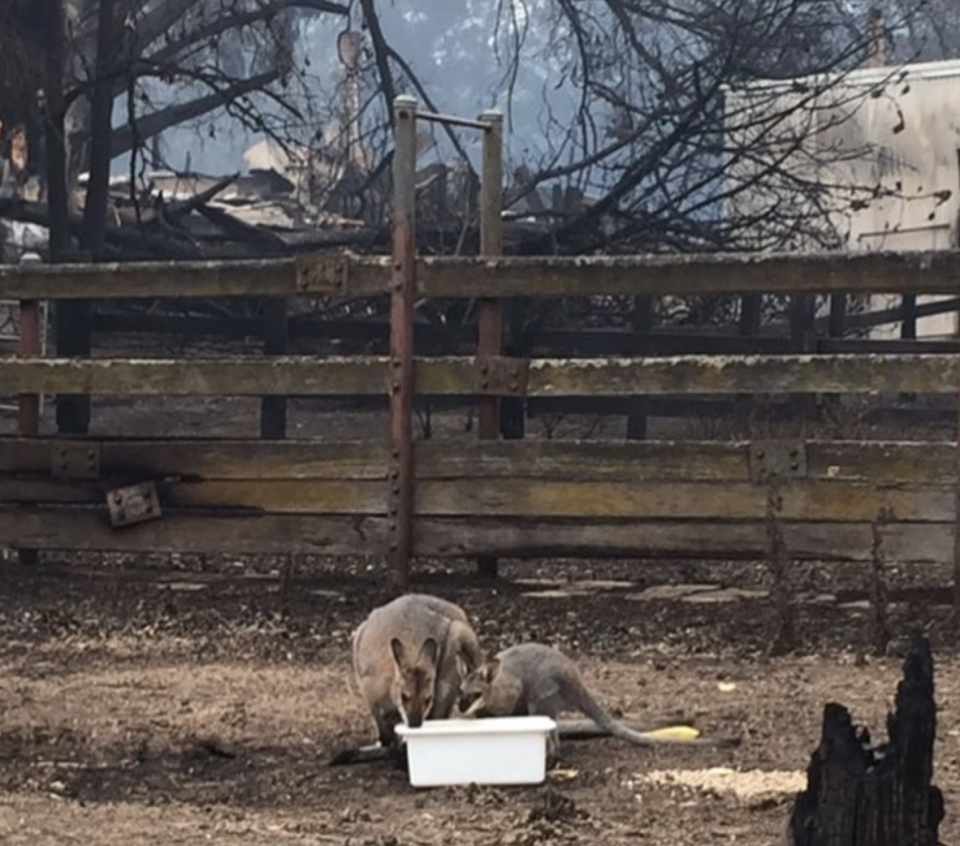How to help Australian wildlife decimated by bushfires
Bushfires have killed an estimated half a billion native animals this summer and many people around the world are wondering how they can help.
The plight of our koalas has dominated the headlines, but there are many other native animals that require urgent assistance.
This guide draws upon my experience as a registered wildlife carer - it is a mix of practical ideas and suggestions of how to donate money and connect with those helping animals on the ground.
What you can do to help wildlife after a bushfire
Leave out bowls of water for animals escaping fires or drought. Place some sticks and stones in the dish to help smaller animals climb out if they fall in.

While people are normally discouraged from feeding wildlife, drought and bushfire has deprived many birds and animals of food.
Feed for birds and animals should be left in an area where wildlife is safe from predators. Bird and bat feeders can be attached to trees and hay and macropod pellets should not be left on hot, charred ground.
If you have cats or dogs keep them inside so they do not attack fleeing wildlife.
If you find fire or drought-affected native animals
Animals that have suffered injury or illness need attention from a registered carer and unskilled individual should call their local wildlife rescue organisation or vet for help.
If it is safe to do so, contain the animal and keep it warm, dark and quiet in a well ventilated container until you can get help.

Injured or sick flying foxes, snakes, large lizards, raptors and macropods should only be approached by registered carers as they can be dangerous.
Please do not attempt to feed the animal once you have it contained.
It is important to put your own safety first – never enter burnt out forests or dangerous areas without permission from your local fire authority.

Avoiding wildlife on the road
Please drive slowly in fire affected areas. Wildlife fleeing fires and looking for food are being hit by cars as they cross the road. Motorists should be aware that native animals will be stressed and disorientated as they leave their habitat fleeing fire.
You should never swerve to avoid wildlife, but instead bring your car to a slow, steady stop.
If you see a marsupial dead on the road, please check its pouch for young. You should never pull a baby animal from the teat, instead try and take the deceased parent to a vet or wildlife carer.

The largest wildlife rescue groups in each fire-affected state
Most wildlife carers across Australia are at capacity as they struggle with ever-increasing numbers of sick and injured animals.
Please only contact these organisations by phone if you find sick or injured wildlife.
Donations to these organisations are tax-deductible and people wishing to help should do so via their websites.
Victoria
Wildlife Victoria
https://www.wildlifevictoria.org.au/
Phone: 03 8400 has 7300
NSW
WIRES Wildlife Rescue
Phone: 1300 094 737
South Australia
Fauna Rescue of SA
https://www.faunarescue.org.au/
Phone: (08) 8289 0896
Western Australia
FAWNA
Phone: (08) 9474 9055
ACT
ACT Wildlife
Phone: 0432 300 033
Access Canberra (for injured kangaroos, sick adult wombats and snakes)
https://www.accesscanberra.act.gov.au/
Phone: 13 22 81
Queensland
Wildlife Rescue Queensland
Phone: 0478 901 801
Tasmania
Bonorong Wildlife Rescue
https://www.bonorong.com.au/wildlife-rescue-service
Phone: 0447 264 625
On the ground wildlife support
Much of the work being done to feed starving wildlife in bushfire and drought-affected regions is being done by individuals who volunteer their time to help animals. There are a number of GoFundMe fundraisers set up to support them.

This is a list of individuals and groups I have spoken to while reporting on wildlife issues for Yahoo News Australia. Stories about them can be located via the hyperlinks.
Wild2Free Kangaroo Sanctuary
Wild2Free is a kangaroo sanctuary run by Rae Harvey. Her home and sanctuary have been destroyed by bushfires.
Koala Hospital Port Macquarie
Koala Hospital Port Macquarie is working around the clock to save dying koalas and roll out water stations to koalas.
https://www.koalahospital.org.au/
Wildlife Empire
Wildlife Empire in Goondiwindi is working to help drought affected koalas.
https://www.facebook.com/pg/Wildlife-Empire-2032997433614974/posts/

Wildlife Rescue Sunshine Coast
Wildlife Rescue Sunshine Coast has been raising money to help drought-affected wildlife and distributing it among smaller groups.
https://www.facebook.com/WildlifeRescueSunshineCoast/
Wildlife ARC
Wildlife ARC is a donation-dependent wildlife charity on the NSW Central Coast that I volunteer for.
Help Cobargo Wildlife
This fundraiser has been set up to help wildlife rescuers in the Cobargo region.
1300 KOALAZ
Adelaide and Hills Koalas Rescue is working to save koalas injured by motor accident and drought.
Hunter Wildlife Rescue
NATF Hunter Wildlife Rescue helps animals across the Hunter Valley, particularly drought affected flying foxes.
https://www.hunterwildlife.org.au/
The Rescue Collective
The Rescue Collective are distributing funds to other animal welfare groups around Australia.
https://therescuecollective.com/
Animal Rescue Collective
Animal Rescue Collective are distributing supplies to those on the ground helping wildlife.
https://www.facebook.com/animalrescuecollective/
World Animal Protection
World Animal protection are a global organisation fundraising for disaster response.
Volunteering to be a rescuer
Wildlife groups are always in search of new members.
If you would like to train to work with wildlife, look at the contact page of your local rescue group and offer your assistance.
Be patient though - these groups are largely run by volunteers who invest their own money and time to help native animals and birds.
The author, Michael Dahlstrom, is a registered native bird carer with Wildlife ARC.
Do you have a story tip? Email: newsroomau@yahoonews.com.
You can also follow us on Facebook, Instagram and Twitter and download the Yahoo News app from the App Store or Google Play.




